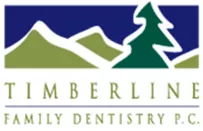Elizabeth TMD Therapy
Benefit From Our General Dental Services
We will see you as soon as possible!
At Timberline Family Dentistry in Elizabeth, CO, we are dedicated to providing comprehensive dental care that addresses a wide range of oral health concerns. One such concern is Temporomandibular Disorder (TMD), a condition that affects the jaw joints and the muscles controlling jaw movement. If you are experiencing pain or discomfort in your jaw, face, or neck, our TMD therapy services can help alleviate your symptoms and improve your quality of life.

What is TMD?
Temporomandibular Disorder (TMD) is a condition that affects the temporomandibular joints (TMJ), which connect your jawbone to your skull. These joints play a crucial role in your ability to chew, speak, and move your jaw. TMD can cause a variety of symptoms, including pain in the jaw, face, neck, and shoulders, as well as difficulty opening or closing your mouth, and even headaches.
TMD can result from various factors, including injury to the jaw, arthritis, teeth grinding (bruxism), and stress. If left untreated, TMD can significantly impact your daily life, making it difficult to eat, speak, and perform other routine activities comfortably.
Symptoms of TMD
TMD can present a wide range of symptoms, which can vary in severity from mild discomfort to chronic pain. Common symptoms of TMD include:
- Jaw Pain or Tenderness: Pain in the jaw joint is a hallmark symptom of TMD. This pain can be localized to one or both sides of the jaw.
- Difficulty Opening or Closing the Mouth: TMD can cause the jaw to lock or make it difficult to fully open or close the mouth.
- Clicking or Popping Sounds: You may hear clicking, popping, or grating sounds when you move your jaw. These sounds may or may not be accompanied by pain.
- Headaches and Ear Pain: TMD often causes headaches, particularly around the temples, and may also cause ear pain or ringing in the ears (tinnitus).
- Facial Pain: Pain in the face, particularly around the cheeks, can occur due to muscle tension and jaw misalignment associated with TMD.
- Neck and Shoulder Pain: TMD can lead to pain and stiffness in the neck and shoulders, which may result from improper jaw alignment and muscle strain.
If you are experiencing any of these symptoms, it’s important to seek professional evaluation and treatment to prevent the condition from worsening.
Causes of TMD
The exact cause of TMD is often difficult to determine, as it can result from a combination of factors. Some of the most common causes and contributing factors include:
- Jaw Injury: Trauma to the jaw or head can damage the TMJ, leading to TMD.
- Arthritis: Degenerative or inflammatory arthritis can affect the TMJ, causing pain and limited movement.
- Bruxism: Grinding or clenching your teeth, often during sleep, can put excessive pressure on the TMJ and lead to TMD.
- Stress: High levels of stress can cause you to clench your jaw or tighten the muscles in your face and neck, contributing to TMD.
- Malocclusion: An improper bite or misalignment of the teeth can cause strain on the jaw joints and muscles, leading to TMD.
Understanding the underlying cause of your TMD is essential for developing an effective treatment plan.
TMD Therapy at Timberline Family Dentistry
At Timberline Family Dentistry, we offer a variety of treatment options to manage and alleviate the symptoms of TMD. Our approach to TMD therapy is personalized to meet your specific needs, with the goal of reducing pain, improving jaw function, and enhancing your overall quality of life.
Comprehensive Evaluation
The first step in treating TMD is a thorough evaluation by our experienced dental team. During this assessment, we will review your medical history, discuss your symptoms, and perform a physical examination of your jaw, mouth, and neck. We may also take X-rays or other imaging studies to get a detailed view of the TMJ and surrounding structures.
Custom Oral Appliances
One of the most common and effective treatments for TMD is the use of a custom oral appliance, also known as a splint or night guard. These devices are designed to fit comfortably over your teeth and help reduce the strain on your jaw joints and muscles. Oral appliances can be worn during the day or while you sleep, depending on your specific needs.
Physical Therapy
Physical therapy can be an important component of TMD treatment. Our team may recommend exercises to strengthen the muscles around the jaw, improve the range of motion, and reduce tension. In some cases, we may refer you to a physical therapist who specializes in TMJ disorders for additional care.
Medications
Medications can also be used to manage the symptoms of TMD. Over-the-counter pain relievers, anti-inflammatory drugs, and muscle relaxants may be prescribed to reduce pain and inflammation. In some cases, antidepressants or anti-anxiety medications may be recommended to help manage stress and reduce teeth grinding.
Stress Management
Since stress is a common contributing factor to TMD, stress management techniques can be an important part of your treatment plan. Techniques such as relaxation exercises, mindfulness, and cognitive-behavioral therapy can help you manage stress and reduce the likelihood of jaw clenching and teeth grinding.
Advanced Treatments
In more severe cases of TMD, advanced treatments may be necessary. These may include corticosteroid injections, Botox injections to relax the jaw muscles, or even surgical intervention in rare cases. Our team will discuss these options with you if they are deemed appropriate for your condition.
Benefits of TMD Therapy
Seeking treatment for TMD offers numerous benefits, including:
- Pain Relief: TMD therapy can significantly reduce or eliminate the pain associated with the condition, improving your comfort and quality of life.
- Improved Jaw Function: Treatment can help restore normal jaw movement, making it easier to eat, speak, and perform other daily activities.
- Prevention of Further Damage: Early intervention can prevent the progression of TMD and reduce the risk of long-term damage to the jaw joints and muscles.
- Enhanced Overall Health: Addressing TMD can improve your overall health by reducing the strain on your jaw, neck, and facial muscles, and by improving your sleep quality if bruxism is involved.
Why Choose Timberline Family Dentistry for TMD Therapy?
At Timberline Family Dentistry, we are committed to providing personalized, patient-centered care. Here’s why you should choose us for your TMD therapy:
Experienced and Skilled Team
Our dental professionals have extensive experience in diagnosing and treating TMD. We take a comprehensive approach to your care, ensuring that all aspects of your condition are addressed. Learn more about our team here.
Customized Treatment Plans
We understand that every patient is unique, and so is their experience with TMD. That’s why we create customized treatment plans tailored to your specific needs and goals. Whether you need a simple oral appliance or more advanced therapy, we’re here to help.
State-of-the-Art Technology
Our practice is equipped with the latest technology and tools to diagnose and treat TMD effectively. From advanced imaging to custom-made oral appliances, we provide the best possible care using modern techniques.
Contact Us Today for TMD Therapy
If you’re experiencing symptoms of TMD, don’t wait to seek treatment. Timberline Family Dentistry is here to help you find relief and improve your quality of life. Call us today at 303-646-3940 to schedule an appointment. You can also check out our Google Maps link for reviews from satisfied customers. For more information, feel free to visit our contact page or reach out with any questions you may have.
At Timberline Family Dentistry, we’re committed to helping you achieve optimal oral health and well-being through effective TMD therapy.
